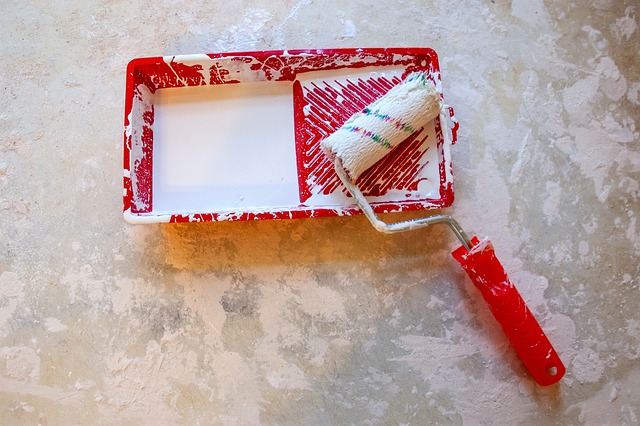When embarking on home repairs, it's crucial for homeowners to conduct a thorough inventory of repair needs to identify specific issues and potential systemic problems. This detailed assessment informs the scope of work, which dictates the project's scale and complexity. Homeowners must consider the materials, timeline, and specialized skills required for their home's unique issues. A precise list of repairs enables effective contractor selection by aligning with professionals who specialize in those services, thereby streamlining the repair process for better results.
Vetting potential contractors is a key step in ensuring successful home repairs. Homeowners should verify contractors' licenses and certifications, check their professional history for credible references, and review their portfolio of similar past projects. It's important to assess their communication skills and responsiveness, as these will impact project collaboration. A contractor's reputation for high-quality workmanship and customer satisfaction is paramount, and their proven expertise in complex repair work will lead to superior outcomes. By combining thorough interviews, reference checks, and reviewing their online presence, homeowners can confidently choose a skilled contractor who will enhance both the functionality and value of their property through expert home repairs. This strategic approach ensures that home repairs are not just completed, but done so with professionalism and attention to detail, resulting in a safe and improved living space.
When your home requires attention, selecting a contractor who meets your needs is paramount. This article guides you through the essential steps of assessing your repair needs, vetting potential professionals, and interviewing to find the ideal contractor for your home projects. From understanding the scope and scale of your repairs to evaluating licenses, references, and past performance, learn how to make informed decisions for reliable and quality home repairs.
- Assessing Your Home Repair Needs: Understanding the Scope and Scale of Projects
- Vetting Potential Contractors: Licenses, References, and Past Performance
- Interviewing and Selecting the Ideal Contractor for Your Home Repairs
Assessing Your Home Repair Needs: Understanding the Scope and Scale of Projects

When embarking on home repairs, a thorough assessment of the repair needs is paramount to ensure the right contractor is selected for the job. Homeowners should start by cataloging each issue that requires attention, noting specific problems and potential areas where more extensive renovations might be necessary. This meticulous inventory helps in defining the scope of work, which in turn informs the scale of the project. Understanding whether a repair is a simple fix or part of a larger system failure is crucial for accurate project estimation. Homeowners must consider the materials needed, the time frame for completion, and the professional expertise required to address the issues effectively. By clearly outlining what needs to be done, homeowners can then seek contractors who specialize in the specific types of work their home requires, leading to a more efficient and satisfactory repair process.
In choosing a contractor, it’s not just about finding someone capable of executing home repairs; it’s about selecting a professional with the right fit for your project’s unique demands. A reputable contractor will conduct a thorough assessment of their own to ensure they fully understand the extent of the work. They should be able to provide detailed estimates, propose viable solutions, and communicate their process clearly. It’s also advisable to verify their credentials, check references, and review past projects to gauge their reliability and craftsmanship. The right contractor for your home repairs will have a track record of successful similar projects, demonstrating an understanding of the intricacies involved in home repair work, and the ability to deliver results that meet or exceed your expectations.
Vetting Potential Contractors: Licenses, References, and Past Performance

When embarking on home repairs, selecting a competent contractor is pivotal to ensuring the job’s success. Vetting potential contractors begins with examining their licenses and certifications. A valid, up-to-date contractor’s license verifies their legal authority to undertake your specific home repair tasks. This credential safeguards you against unqualified individuals who might compromise the integrity of your home. Beyond licensing, references are a critical component of the vetting process. Requesting and reviewing past clients’ testimonials provides insight into the contractor’s reliability, work quality, and adherence to timelines. References offer a practical glimpse into what you can expect from the contractor-client relationship. Additionally, assessing their past performance through completed projects and their online presence can be highly informative. Checking out their portfolio, which might include images of previous work or case studies, allows you to evaluate their expertise in home repairs. Reviews and ratings on reputable platforms can further corroborate the quality of their service, giving you confidence that your chosen contractor has a history of delivering satisfactory results. By carefully vetting potential contractors through these means, you increase the likelihood of partnering with a professional who will execute your home repairs to a high standard.
Interviewing and Selecting the Ideal Contractor for Your Home Repairs

When embarking on home repairs, selecting a competent contractor is pivotal to ensure quality workmanship and satisfactory outcomes. Interviewing potential contractors involves asking probing questions that reveal their expertise, reliability, and approach to projects. Begin by verifying their credentials, including licenses and insurance, which offer assurance of professionalism and protection against unforeseen events. Inquire about their previous experience with similar home repair projects to ascertain their familiarity and proficiency in handling your specific needs. A contractor’s portfolio can serve as a visual testament to their past work, showcasing the breadth and quality of their completed projects. It’s also crucial to assess their communication style and responsiveness; a responsible contractor should provide clear explanations and be accessible for any questions or concerns you may have. References from previous clients can offer insights into the contractor’s reliability, work ethic, and the satisfaction levels of their completed projects. By conducting thorough interviews and selecting a contractor who demonstrates expertise, reliability, and a commitment to excellence, you’ll be better positioned for successful home repairs that enhance both the functionality and value of your property.
When it comes to ensuring your home repairs are executed with skill and care, selecting the right contractor is paramount. By thoroughly assessing your repair needs, you can define the scope and scale of your projects, which sets a clear foundation for finding a competent professional. The due diligence of vetting potential candidates by examining their licenses, references, and past performance will steer you towards those with a proven track record. Ultimately, through insightful interviews and a thoughtful selection process, you’ll find a contractor who not only meets your expectations but also aligns with your home repair objectives. Remember to approach each step methodically to secure the best possible outcome for your home repairs.
